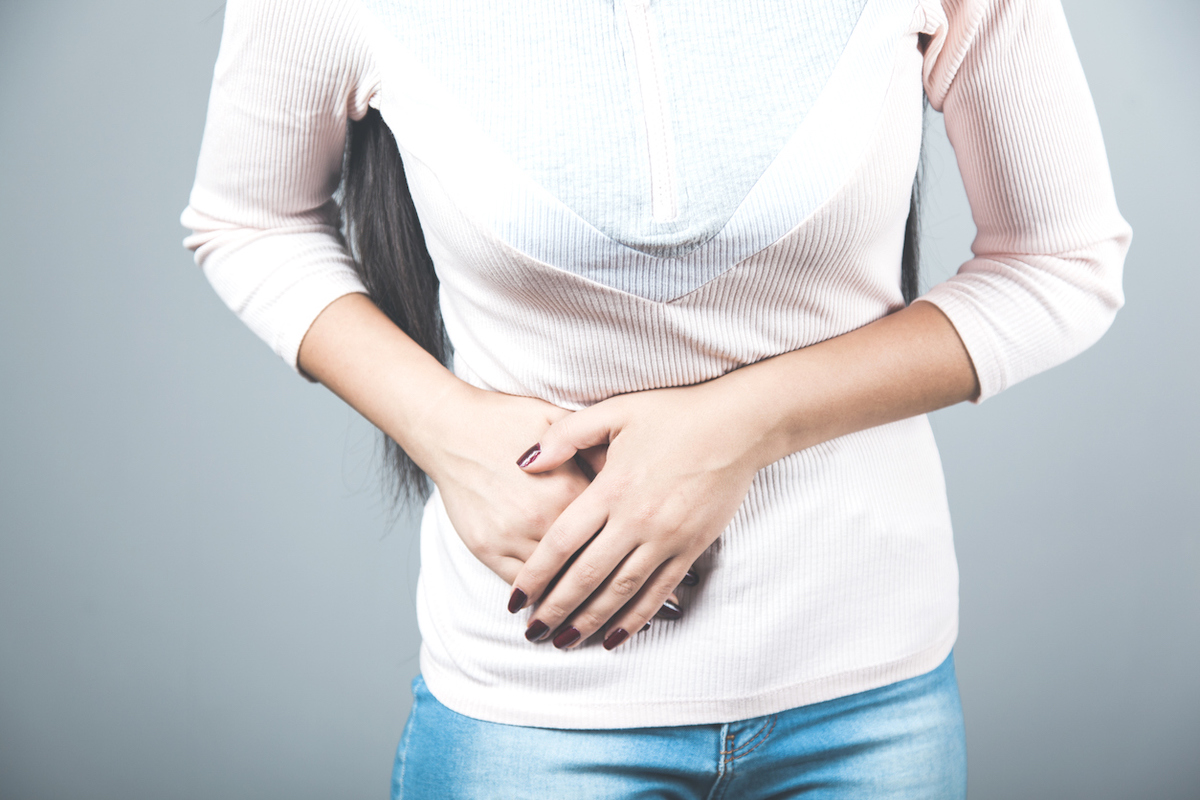This past year has seen many Americans lean heavily on alcohol to cope with the stresses and uncertainties of the COVID pandemic—and one of the most well-known ways that can wreak havoc on your body is via your liver. According to John Hopkins, there are three types of alcoholic liver disease: fatty liver, alcoholic hepatitis, and alcoholic cirrhosis. Fatty liver is the most common alcohol-related liver disease and considered the first stage of alcoholic liver disease, per MedlinePlus. Unfortunately, this stage often causes little to no symptoms—except you may experience upper abdominal discomfort on your right side, just below your ribs, according to John Hopkins. “Usually, it is a dull, vague pain though it can sometimes be quite severe and may cause a backache,” LiveScience reports. “Sometimes people perceive it as pain in the right shoulder. … It can be hard to pinpoint the exact location or cause of such pains, so it is important to see a doctor.” Alcoholic hepatitis can also produce pain over the liver, fever, weakness, nausea, vomiting, appetite loss, and yellowing of the skin and eyes. And alcoholic cirrhosis can produce all the same symptoms of alcoholic hepatitis, alongside confusion, kidney failure, and portal hypertension. The experts at John Hopkins say that many of these symptoms may look like other health problems, so you should always see a doctor if you have any concerns to get a proper diagnosis. And for more reasons to talk to your doctor, If This Body Part Hurts You at Night, See Your Doctor. Doctors have seen a surge in alcoholic liver disease over the last year. According to the Los Angeles Times, hospital admissions for this disease increased by 30 percent at The Keck Hospital of USC from 2019 to 2020. And they have also increased by up to 50 percent since March at hospitals affiliated with the University of Michigan, Northwestern University, Harvard University, and Mount Sinai Health System in New York City. While national figures have yet to be released, Jessica Mellinger, MD, a liver specialist at Michigan Medicine, told NPR that the consensus among doctors is that alcoholic liver disease has substantially increased since COVID hit. “In my conversations with my colleagues at other institutions, everybody is saying the same thing: ‘Yep, it’s astronomical. It’s just gone off the charts,’” she said. And for more ways you may be hurting your body, If You Drink This Much Coffee a Day, Your Heart’s in Danger, Study Finds.ae0fcc31ae342fd3a1346ebb1f342fcb Alcoholic liver disease is most common in people between 40 to 50 years old, according to MedlinePlus. But Mellinger says the concern is that the disease is rising substantially in younger adults. “We’re seeing kids in their late 20s and early 30s with a disease that we previously thought was kind of exclusive to middle age,” Mellinger told NPR. On top of that, women in particular are drinking more in the pandemic, putting them at a high risk. According to a September 2020 study published in JAMA Network Open, women exhibited a 41 percent increase in alcohol consumption during 2020. While liver disease usually takes years to develop, it can occur much quicker in women because of the differences in how men and women process alcohol. “Compared with men, women develop alcohol-induced liver disease over a shorter period of time and after consuming less alcohol,” reports the National Institute on Alcoholism and Alcohol Abuse. And for more up-to-date health news delivered right to your inbox, sign up for our daily newsletter. Alcoholic cirrhosis is the most serious form of alcohol-related liver disease, which produces damage that is not reversible and can cause fatal liver failure, according to the American Liver Foundation. However, not only is alcoholic liver disease preventable, but it can also be treated if it’s caught early. In fact, it is possible for liver damage to be reversed if it’s detected in its early stages and the patient stops drinking. So getting upper abdominal discomfort on your right side—one of the only symptoms of the earliest type of alcoholic liver disease—checked out by a doctor may save you from irreversible damage. And for more health concerns, know that This Is the One Vitamin You Should Never Take, Doctors Say.
